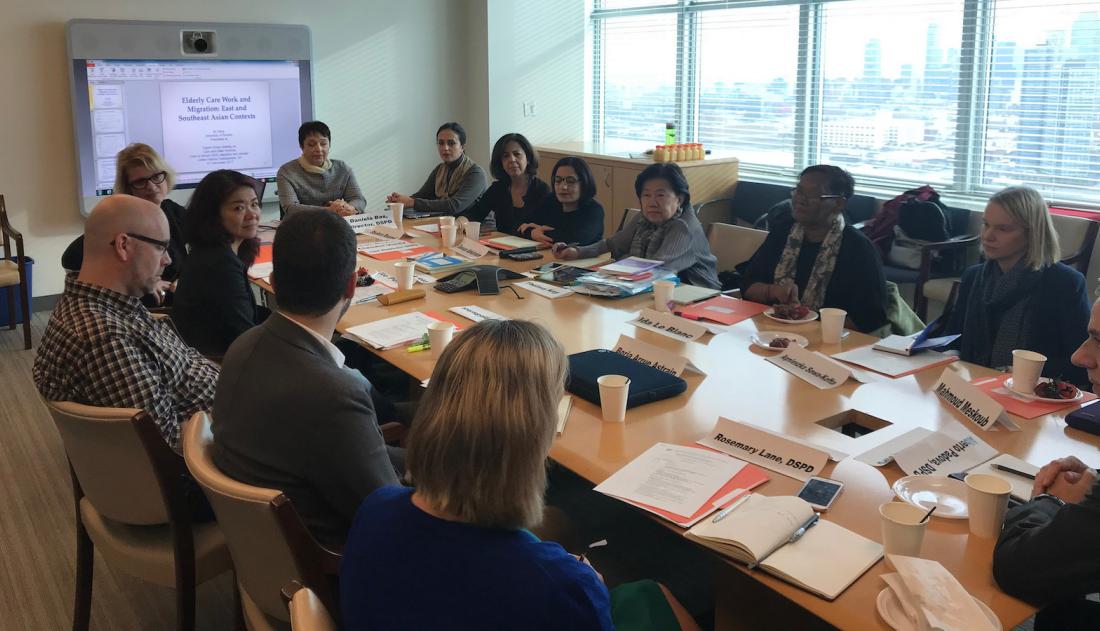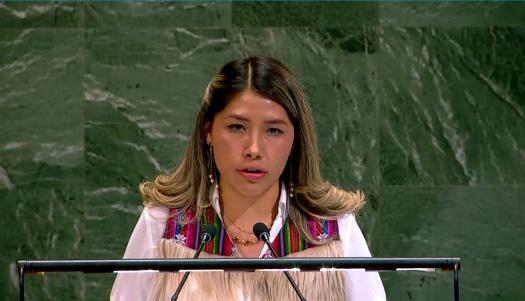
The United Nations Expert Group Meeting on Care and Older Persons: Links to Decent Work, Migration and Gender was held from 5 to 7 December 2017 at UN Headquarters in New York. The meeting brought together 12 experts from across regions and from a cross disciplinary selection of universities and civil society and intergovernmental organizations over two and a half days.
The issue of care for older persons is garnering growing visibility and attention amidst rapid population ageing. The population of older persons has been on the rise and is further projected to double between now and 2050. This trend is shedding light on the absent or inadequate care systems currently in place in many countries, and the need for swift policy action to not only meet existing care gaps but to also expand the supply and quality of care in line with growing demand. Notably, the General Assembly’s Open-ended Working Group on
Ageing selected long-term care – as well as palliative care – as one of two areas of concentration for its next session in 2018. One session of the expert group meeting examined this broad issue, focusing on care models and trends and the promotion of high-quality care.
Yet the issue of care for older persons is clearly not a singular one. Rather, it has multiple dimensions, some of which have been examined more than others. Accordingly, the meeting homed in on the specific, intersecting social dimensions of gender, migration and decent work during three of its sessions. It examined unpaid care work, which is usually – and stereotypically – carried out by women family members, the volume of which is intensified where public spending is cut. It also explored paid care work, which is also often performed by women and frequently characterized by low wages and sometimes exploitative conditions. In particular, it addressed the growing relevance of migration to the global supply of care work, which has repercussions for both sending and receiving countries. It also calls attention to the increased vulnerabilities of migrant care workers, who are disproportionately female, regarding decent work and other rights.
Throughout the first four sessions, experts shared their respective research and analysis and discussed one another’s findings and experiences, asking key questions and developing conclusions for specific policy action. In analysing these inter-related issues, they focused on the end users of care, who are older persons, while recognizing that the goal of quality care for older persons is intricately connected to decent and fair employment and migration, as well as respect for rights and the principle of non-discrimination. They also stressed that many older persons are in fact caregivers themselves, and additionally, that unpaid care and paid care are inter-related and need to be balanced. For instance, easing an individual’s unpaid care burden may enable their access to a decent job. At the same time, measures can be taken to recognize, value, and create decent conditions for unpaid care.
Overall, the meeting was premised on the following overarching question: how can all older persons have access to affordable and high-quality care if and when needed, while ensuring that all care workers have decent jobs and are valued and supported.
Based on the discussions throughout the first four sessions, the final session was devoted to jointly formulating an agreed set of policy recommendations, which will inform the work of UNDESA’s Division for Social Policy and Development.
 Welcome to the United Nations
Welcome to the United Nations


